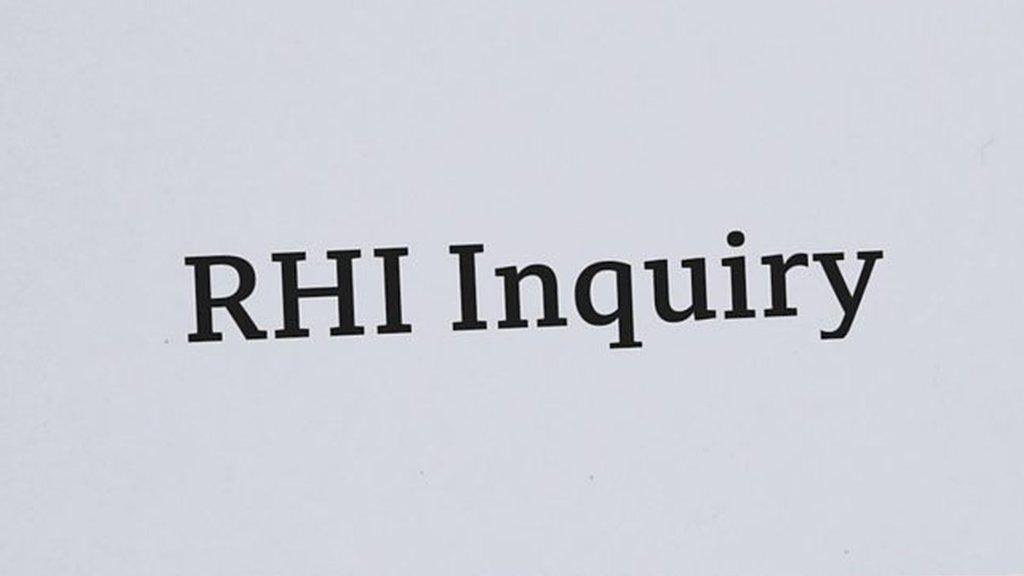RHI: Fewer than half of recommendations implemented
- Published
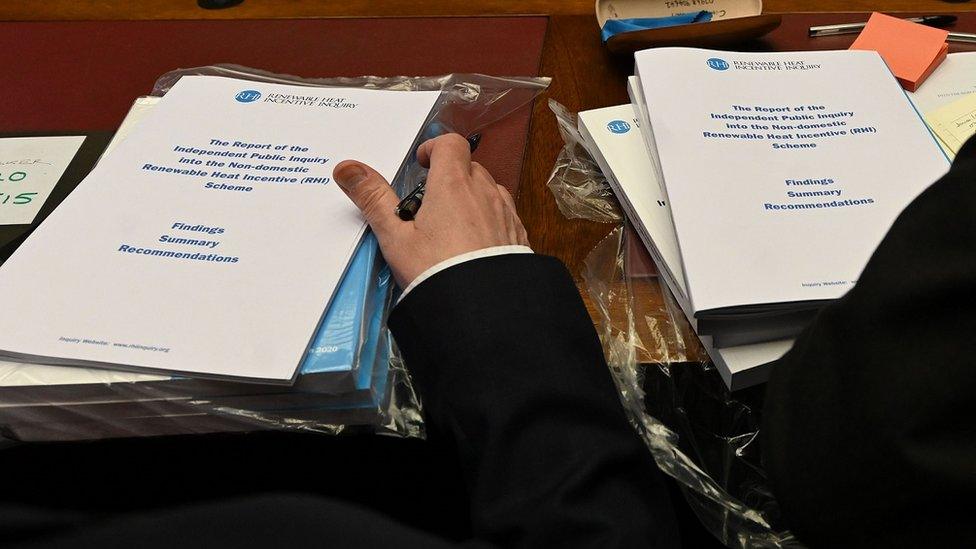
The public inquiry into RHI was set up in 2017 and produced its findings in 2020
Fewer than half of the recommendations from the Renewable Heat Incentive (RHI) Inquiry have been fully implemented, an audit report has found.
A list of 44 recommendations was made, aimed at addressing the failures found by the investigation into the scandal.
Only 18 have been implemented in full.
The report indicates a further 14 recommendations are likely to be implemented, but planned actions for 10 are not likely to address their recommendation.
Northern Ireland's comptroller and auditor general Kieran Donnelly said the progress was "disappointing".
"Given that it is now two years since the inquiry reported, it is disappointing that there are only 18 recommendations that we can regard as fully implemented," he said.
"I look forward to seeing further progress on the implementation of the remainder in the future."
The report also looked at the disciplinary process that was carried out following the inquiry's findings.
Charges of misconduct were recommended for 11 individuals, but only one received a written warning for misconduct after the disciplinary process was followed.
Mr Donnelly said he was surprised at the outcome.
"The seriousness of the issues that were discussed during the RHI Inquiry would have led most people to believe that significant disciplinary consequences would have arisen from it," he said.
"In that context, it seems surprising that only one individual has received a written warning for misconduct.
"However, based on my review, I am satisfied that the disciplinary process appears to have been followed properly."

What was the RHI scandal?
The RHI scheme paid 1,200 businesses to switch from oil and gas to what was meant to be environmentally-friendly heating, using wood pellet boilers.
However, the subsidy payment was higher than the cost of the fuel, creating an incentive to use the boilers to generate income.
It became known as the cash-for-ash scandal.
The revelations caused a political crisis that led to a temporary collapse of Northern Ireland's devolved government in January 2017 as the then Deputy First Minister Martin McGuinness resigned in protest of the then First Minister Arlene Foster's handling of the scandal.
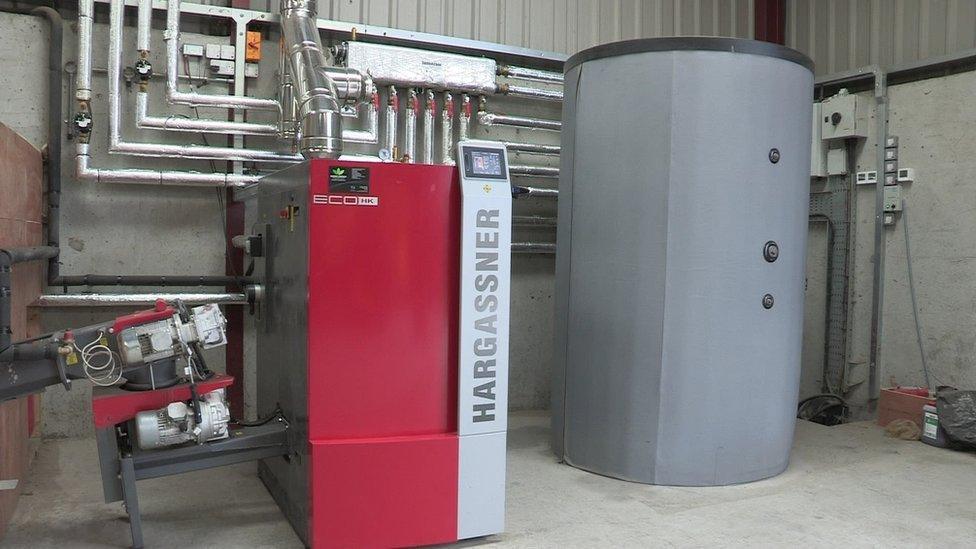
The wood pellet boilers used in the scheme
A public inquiry into the running of the RHI scheme was set up in 2017 and this cost taxpayers £13m.
The inquiry concluded that it was not corruption that led to the scheme running out of budgetary control but rather flaws in its design as well as errors and lack of attention on the part of those responsible for overseeing it.
Three years after it collapsed over the RHI controversy, Stormont was restored in January 2020 under the New Decade, New Approach , externalagreement.
That 2020 agreement stated the RHI scheme should be closed down and replaced with a new scheme that "effectively cuts carbon emissions".
- Published3 March 2022
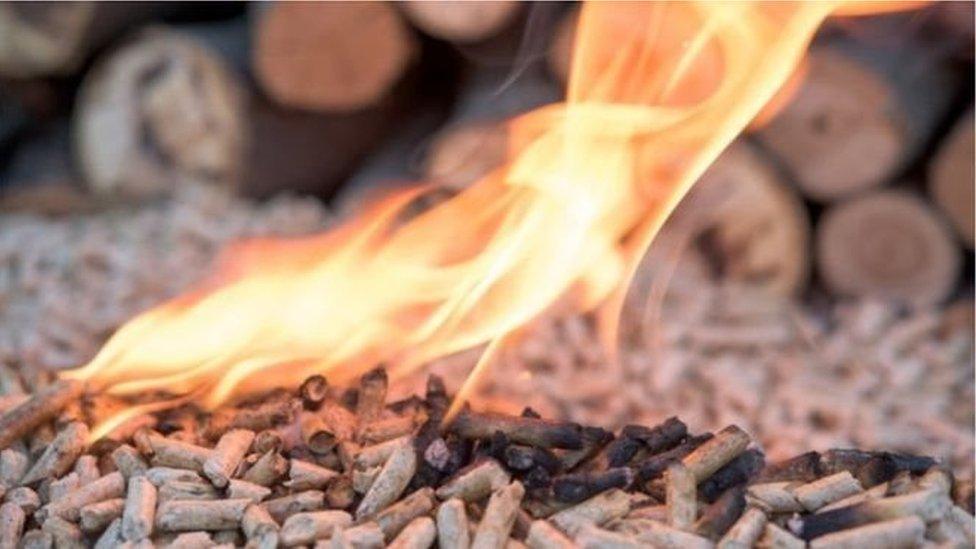
- Published13 March 2020
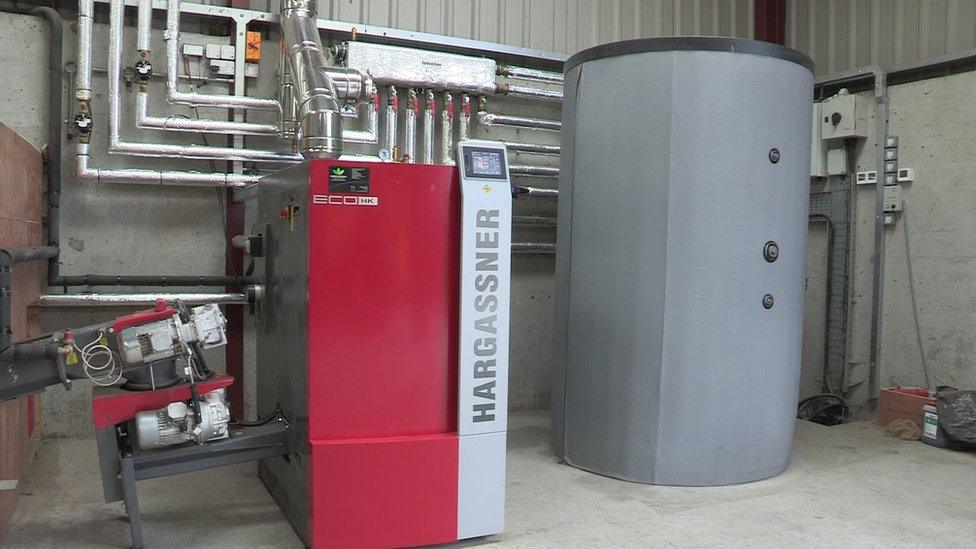
- Published13 March 2020
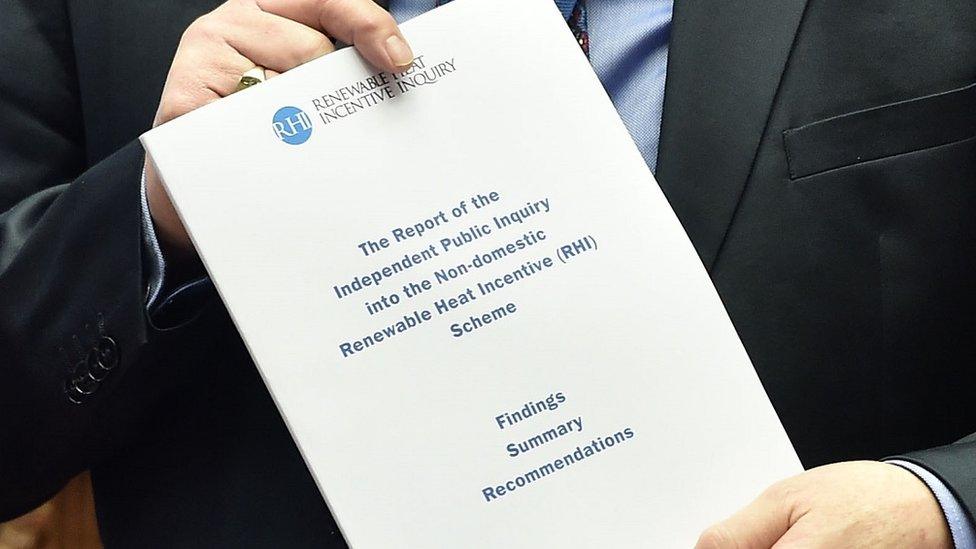
- Published13 March 2020
